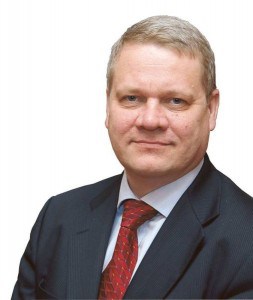Yleisradio Oy, the public broadcasting service in Finland, today reported starting next July, every person in Finland will have the right to a one-megabit broadband connection.
The announcement from the Ministry of Transport and Communications makes Finland the second European nation to consider broadband service more than just a modern day convenience.
Minister of Communications Suvi Lindén said broadband service must be universal, and at equitable speeds throughout Finland. Private providers have been unable or unwilling to bring universal service to the country, so the Finnish government is compelled to do the job they won’t.
“No-one can be left outside the day-to-day functioning of the information society. As the telecommunications network needed cannot be provided on market terms in all respects, its construction must be supported by public funds,” she said.
Permanent Secretary Harri Pursiainen confirmed Lindén’s views about universal access in a study concluding it is impossible to expect commercial providers to provide regionally equal service throughout the country.
Finland intends to construct an advanced broadband network, starting with the guarantee of 1Mbps minimum speeds for virtually every citizen. The plan recognizes that reaching the most remote parts of the country will require a mobile broadband network, and have made provisions to tolerate lower speeds on those networks, for now.
But the Finnish government does not consider 1Mbps anywhere near adequate to provide 21st century connectivity. It has declared that anything less than 100Mbps service is simply unacceptable in the new “information economy.”
The 100Mbps minimum service standard would be mandatory, and targeted to be achieved no later than 2015, if the recommendations are approved by the Finnish Parliament.
“Citizens and businesses need increasingly effective data transfer. This is necessary, among other things, for teleworking, business, e-commerce, and access to social and health services,” Lindén states.
Television broadcasting also faces a turning point in the next few years, as channels become more diverse and high-definition transmission enters the picture. Here, high-speed broadband is an essential factor,” Lindén stresses.
The report proposes that the state, regions and municipalities share in the costs of improving the telecommunications network in those areas where the target level for 2015 cannot be reached by commercial means. The purpose is for the Regional Councils to organize competitive bidding among the telecommunications operators.
Where public funds are needed to construct networks, money will be raised by auctioning off certain radio frequencies for commercial use, as well as a telecommunications tax levied on providers in the country, somewhat equivalent to the United States’ Universal Service Fund, which helps subsidize rural telephone service.
Finnish consumers can still elect not to purchase broadband service, and can still select among several providers, choosing the speed and technology they want for the connection. The Finnish government will offer a “domestic help credit,” akin to a tax credit or subsidy, to help disadvantaged Finns purchase computers and other equipment to use broadband service.
Finland joins Switzerland in providing universal access to broadband. The Swiss government was the first in Europe to mandate broadband service availability throughout the country as of January 1, 2008. But the Swiss definition of broadband is much more limited, setting minimum acceptable speeds at just 600kbps downstream and 100kbps upstream.
Both the United States and the United Kingdom have universal service goals as well. The UK government targets 2Mbps speed to “virtually all” homes by 2012, funded by a telephone line tax.
Thanks to Stop the Cap! reader Greg for the news tip.


 Subscribe
Subscribe

